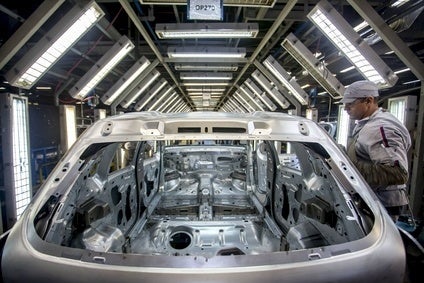
In a planning workshop conducted by local media group Automotive Business, analysis by PricewaterhouseCoopers (PwC)’s Brazilian subsidiary was troubling.
During the panel discussion of ‘lessons from infrastructure’ it became evident the sector’s problems are among the main causes for Brazil boasting one of the more costly automotive manufacturing sectors worldwide.

Discover B2B Marketing That Performs
Combine business intelligence and editorial excellence to reach engaged professionals across 36 leading media platforms.
Even the recent devaluation of the Brazilian real against the US dollar was insufficient to boost the country’s productivity both at home and overseas. Besides the well known problems of the very high tax burden, persistent bureaucracy interference and high financing costs, the overlooked infrastructure and logistics aspects also exert a negative influence.
According to Ricardo Pazzianotto, PwC’s managing associate, China achieves costs per manufactured unit 63% lower than Brazil. And this alone is not the result of a production volume four times higher.
“The proportion of logistics in production costs the world over is 10% maximum on average, while here it is up to 17%,” he told just-auto.
A biennial research study by the World Bank called the Logistics Performance Index (LPI) compares the sector productivity of 155 countries. It considers customs efficiency, infrastructure conditions, transport means, export costs, logistics’ quality and efficiency, shipments follow-up and on-time deliveries.
Brazil ranked 43rd despite the economy ranking seventh under buying power parity criteria ahead of France, the United Kingdom and Indonesia.
PwC conducted similar research to the World Bank to compare logistics to some countries and regions’ auto producers. It assessed inbound operations (receiving of material and components for production) and outbound (vehicle distribution to retail). In both cases Brazil rated poorly.
“Inadequate infrastructure and very poor operational conditions lead to very high costs. Examples are over-extended ports, the insufficiently paved and badly maintained road network and an overlooked railway system,” said Pazzianoto.
Nonetheless, he thinks Brazil is about to solve a good portion of these problems. The federal government has announced a newly ambitious plan of transport and logistics refurbishment by means of infrastructure concessions to private enterprise and public-private projects as well.
This really is the relaunch of a previously announced programme which could reach a BRL250bn/US$80bn spend but with more attractive conditions now for both external and internal investors. The budget is aimed at four transport modes: ports, railways, roads and airports.
By the consultancy’s estimates, however, for the roadway model only some BRL190billion/$61billion would be needed.
One can see it will take time to change from this current gloomy situation and for local automotive manufacturing to benefit from lower costs.






